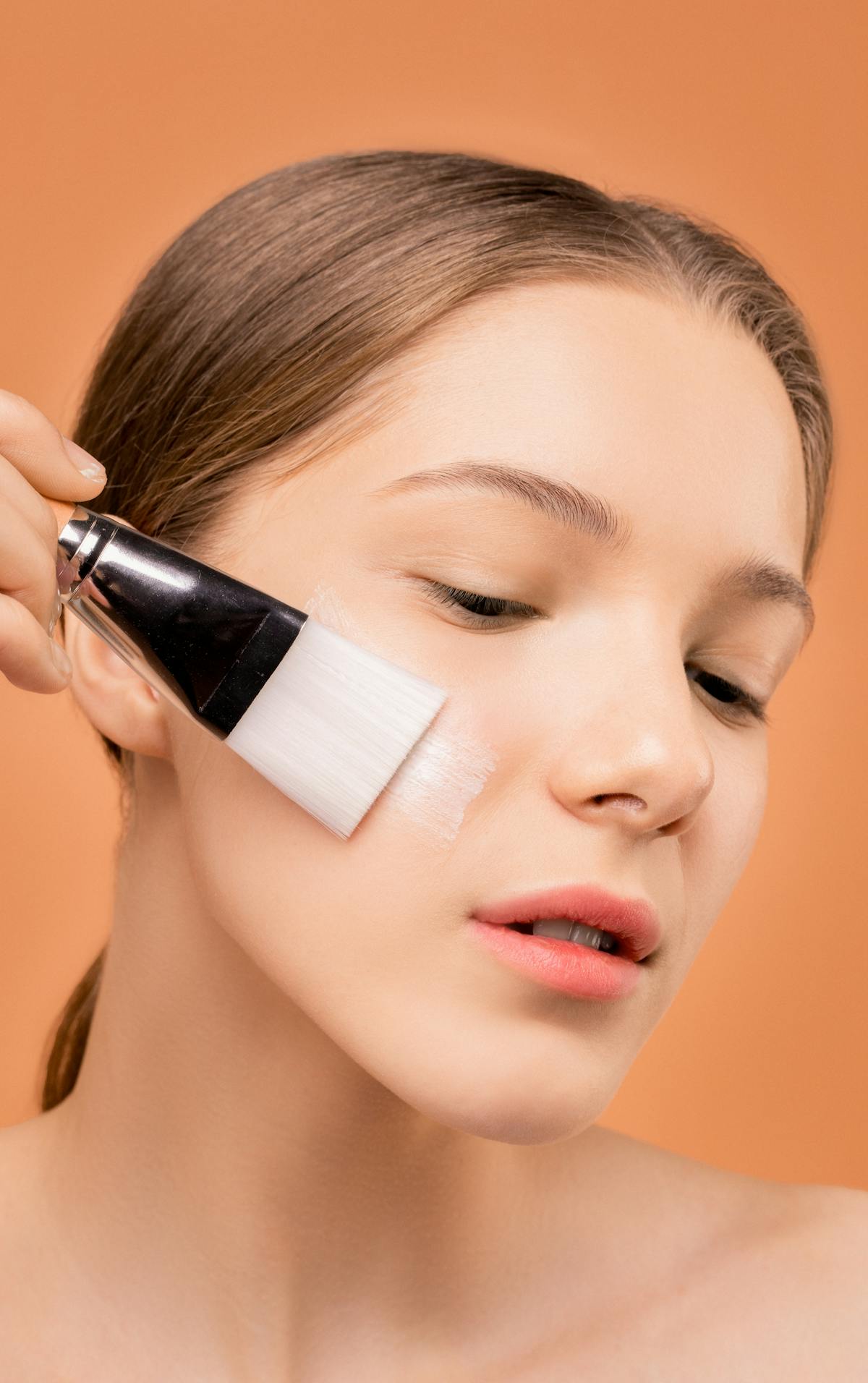Skin Care Guide: When to Use What for Healthy, Glowing Skin
By VitalWell Hub • Updated on October 2025

When it comes to achieving healthy, glowing skin, it’s not just about the products you choose — it’s about how and when you use them. Skincare is an art backed by science. Using serums before moisturizers or applying sunscreen after moisturizer may seem trivial, but the sequence and timing can dramatically affect results. Many skincare enthusiasts invest in premium products but miss out on their full potential due to improper application.
This comprehensive guide will help you understand the ideal skincare routine for both mornings and nights, explain the logic behind layering products, and provide actionable tips for enhancing skin health. By following these steps, you can maximize the effectiveness of your routine and nurture radiant, resilient skin.
Understanding Skin and Its Needs
Skin is the body’s largest organ, serving as a barrier against environmental stressors such as UV rays, pollution, and microbes. It consists of three main layers:
- Epidermis: The outermost layer, responsible for protection and hydration.
- Dermis: The middle layer, rich in collagen and elastin, providing elasticity and strength.
- Subcutaneous Tissue: The deepest layer, composed of fat and connective tissue, aiding insulation and cushioning.
Understanding your skin type — whether oily, dry, combination, sensitive, or mature — is key to choosing the right products. Each type responds differently to cleansers, serums, and moisturizers, which makes timing and layering even more crucial.
Why the Order of Skincare Products Matters
Skincare products vary in texture, molecular weight, and function. Applying them in the correct order ensures:
- Optimal absorption of active ingredients
- Enhanced hydration and protection
- Prevention of product pilling or reduced efficacy
For instance, lightweight serums penetrate the skin more effectively if applied before heavier creams. Moisturizers act as a barrier, preventing active ingredients from evaporating. Sunscreens applied last protect all underlying layers without interference.
Morning Skincare Routine: Protect & Prepare
The morning routine is all about cleansing and protection. Your skin needs hydration and a shield against UV rays and environmental pollutants.
- Cleanser: Use a gentle, water-based cleanser to remove overnight oil and sweat. Ingredients like glycerin, chamomile, or aloe vera are soothing and prevent stripping natural oils.
- Toner: Balances the skin’s pH and primes it for active ingredients. Look for toners with antioxidants or hydrating components like hyaluronic acid or rose water.
- Serum: Vitamin C serums brighten skin and combat free radical damage. Other options include niacinamide for regulating oil or peptides for skin firmness.
- Eye Cream: A lightweight eye cream in the morning can protect against puffiness and dark circles.
- Moisturizer: Choose a moisturizer suitable for your skin type. Gel-based for oily skin, cream-based for dry skin, or lotion for combination skin. Hydration smoothens skin and prevents dehydration-induced aging.
- Sunscreen: Apply a broad-spectrum SPF 30 or higher, even if indoors. Sunscreen prevents premature aging, pigmentation, and skin cancer.

Morning Skincare Tips
- Pat skin dry instead of rubbing after washing.
- Apply 2–3 drops of serum to face and neck using upward strokes.
- Allow 30–60 seconds between layers for better absorption.
- Reapply sunscreen if outdoors for extended periods.
Night Skincare Routine: Repair & Nourish
Night routines focus on repair, nourishment, and hydration. The skin repairs itself while you sleep, so active ingredients like retinol, peptides, and hyaluronic acid are more effective at night.
- Makeup Remover / Oil Cleanser: Removes makeup, sunscreen, and pollution residues. Micellar water or cleansing oils work well for thorough removal.
- Foam or Cream Cleanser: Follow with a gentle cleanser to clean pores without stripping natural oils. Avoid sulfates if skin is sensitive.
- Exfoliation (2–3 times a week): Removes dead skin cells and encourages cell turnover. Chemical exfoliants like AHAs or BHAs are often gentler than physical scrubs.
- Toner: Prepares the skin to absorb serums and prevents over-drying.
- Serum: Retinol or peptides support skin repair and collagen production. Hyaluronic acid maintains hydration and plumpness.
- Eye Cream: Target fine lines, puffiness, and dark circles. Ingredients like caffeine, peptides, or hyaluronic acid are effective at night.
- Night Cream / Sleeping Mask: Locks in moisture and delivers nourishing ingredients to promote overnight repair. Look for ceramides, shea butter, or squalane for deep hydration.
Night Skincare Tips
- Use retinol gradually — 2–3 times per week initially to avoid irritation.
- Always patch test new active ingredients.
- Apply heavier creams in upward strokes to prevent sagging.
- Maintain consistent bedtime skincare for visible results.
Common Skincare Ingredients and Their Functions
Knowing the key ingredients helps in choosing products and understanding layering:
- Hyaluronic Acid: Hydrates and plumps skin by retaining moisture.
- Vitamin C: Brightens skin, fights free radicals, and reduces pigmentation.
- Retinol (Vitamin A): Promotes cell turnover, smooths fine lines, and improves texture.
- Niacinamide: Controls oil, strengthens the skin barrier, and reduces redness.
- Peptides: Stimulate collagen production, improving firmness.
- AHAs & BHAs: Chemical exfoliants for smooth, even skin.
- Ceramides: Repair and protect the skin barrier.
Layering Products: From Thinnest to Thickest
One of the easiest ways to ensure your skincare is effective is to layer products correctly:
- Cleansers: Remove impurities and prep skin.
- Toners & Essences: Lightweight, water-based hydration and prep.
- Serums & Ampoules: Concentrated active ingredients penetrate deeply.
- Eye Cream: Usually slightly heavier than serums.
- Moisturizers & Creams: Thicker textures that lock in moisture.
- Sunscreens / Oils: Final protective layer.
Skincare Routine Adjustments by Skin Type
Not all skin types react the same way to products. Here’s how to customize your routine:
Oily Skin
- Use foaming or gel-based cleansers.
- Opt for lightweight, non-comedogenic moisturizers.
- Clay masks once a week to absorb excess oil.
Dry Skin
- Use cream-based cleansers and moisturizers.
- Include humectants like hyaluronic acid for hydration.
- Gentle exfoliation 1–2 times weekly to prevent flaking.
Combination Skin
- Target oily areas (usually T-zone) with lightweight products.
- Use richer moisturizers on dry patches.
- Balance hydration and exfoliation accordingly.
Sensitive Skin
- Avoid harsh scrubs and alcohol-based toners.
- Patch test new products before full application.
- Look for soothing ingredients like aloe vera, chamomile, or centella asiatica.
Seasonal Skincare Adjustments
Weather and environment influence skin needs:
Summer
- Lighter moisturizers and gel-based formulas.
- High SPF sunscreen (30–50+) and reapplication every 2–3 hours outdoors.
- Antioxidant serums to combat sun and pollution damage.
Winter
- Richer creams and oil-based moisturizers.
- Hydrating serums with hyaluronic acid and glycerin.
- Protective barriers to prevent dryness from cold air and indoor heating.
Lifestyle Factors That Influence Skin Health
Skincare isn’t just topical — lifestyle plays a huge role:
- Hydration: Drink adequate water daily to maintain skin moisture.
- Balanced Diet: Include antioxidants, omega-3 fatty acids, and vitamins A, C, E for skin health.
- Sleep: Aim for 7–9 hours; skin repairs during deep sleep cycles.
- Stress Management: Meditation, yoga, and breathing exercises reduce stress-induced skin issues.
- Exercise: Enhances circulation, delivering nutrients and oxygen to skin cells.
Common Skincare Mistakes to Avoid
- Over-exfoliating, which damages the skin barrier and leads to sensitivity.
- Mixing incompatible actives, like Vitamin C and retinol in the same routine.
- Skipping moisturizer on oily skin — hydration is essential for all skin types.
- Not using sunscreen — UV damage is cumulative and accelerates aging.
- Neglecting the neck and décolletage — these areas age faster without care.
How to Introduce New Skincare Products
- Start with one new product at a time.
- Patch test on a small area for 24–48 hours to check for reactions.
- Observe skin for 2–4 weeks before adding another new product.
- Gradually increase frequency of active ingredients like retinol or acids.
DIY and Natural Skincare Tips
While commercial products are effective, some natural remedies can complement your routine:
- Oatmeal masks: Soothe sensitive or inflamed skin.
- Honey: Natural antibacterial and moisturizing agent.
- Aloe vera gel: Calms irritation and hydrates.
- Green tea compress: Rich in antioxidants and reduces puffiness.
Always patch test DIY products and avoid harsh natural ingredients that may irritate skin.
Tracking Progress and Patience
Visible results require consistency. Keep a skincare journal noting:
- Products used and order
- Skin reactions or improvements
- External factors like weather, stress, diet, and sleep
Most active ingredients take 4–6 weeks to show noticeable effects, so patience is key.
Professional Treatments to Enhance Skin Health
Skincare products can be complemented with professional treatments:
- Chemical peels for exfoliation and pigmentation control
- Microdermabrasion for smoothing texture
- Laser treatments for scars, pigmentation, and hair removal
- Facials tailored to skin type for deep cleansing and hydration
Always consult a licensed dermatologist before undergoing professional treatments.
Conclusion
Effective skincare is a combination of the right products, proper order, consistent routines, and lifestyle habits. By understanding when to use each product and how to layer them, you can optimize results and achieve glowing, healthy skin. Remember, skincare is a marathon, not a sprint — consistency, patience, and knowledge are your best allies.
For more guidance, explore our detailed articles on healthy skin habits, skincare tips, and product recommendations suited to every skin type.
Comments
Post a Comment
We love your feedback! Please share your thoughts below. All comments are moderated to ensure a positive and helpful community. Spam or inappropriate comments will be removed.